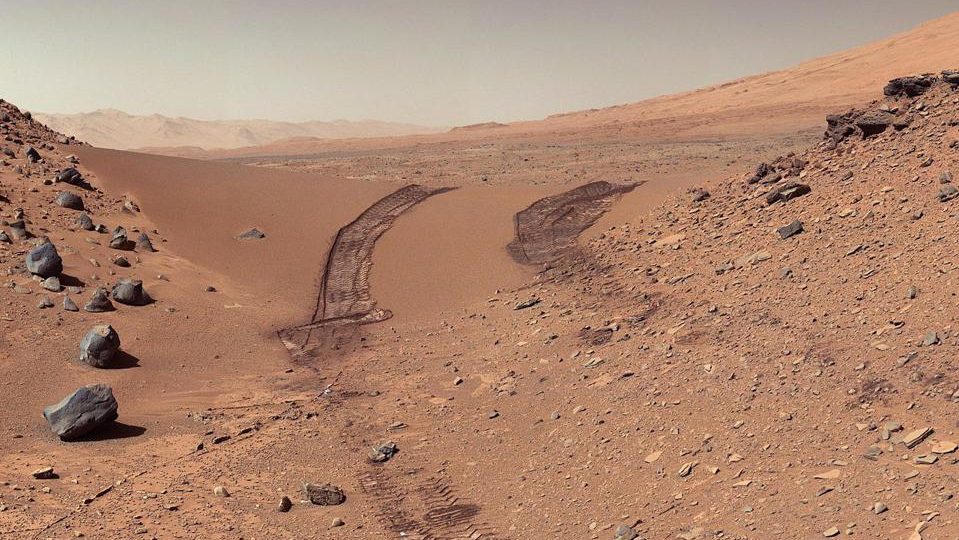Weekend Diversion: An Underwater Waterfall?
It’s one of nature’s most amazing sights, but how does it work?
“I love the sounds and the power of pounding water, whether it is the waves or a waterfall.” –Mike May
The world’s oceans have always been special to me, and bodies of water in general. The air smells different, the wind blows cool, and you’re reminded of the power of the salty seas every time you step in. It’s one of the reasons that the old sea shanties have always fascinated me. This week, have a listen to an updated take on that genre, as The Real McKenzies sing a cover of the more recent classic, Barrett’s Privateers.
http://www.youtube.com/watch?v=teKGPxr86ME
But there’s one ocean sight I had never seen before until recently: what appears to be an underwater waterfall!
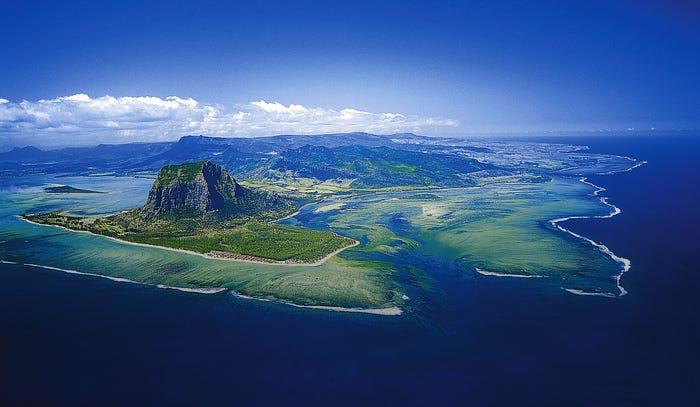
Image credit: St. Regis Mauritius Resort, Mauritius.
Yes, off the island of Mauritius in the Indian Ocean, for all of its beauty, has what appears to be one of the most unexpected feasts for human eyes. It’s especially prominent from the air.
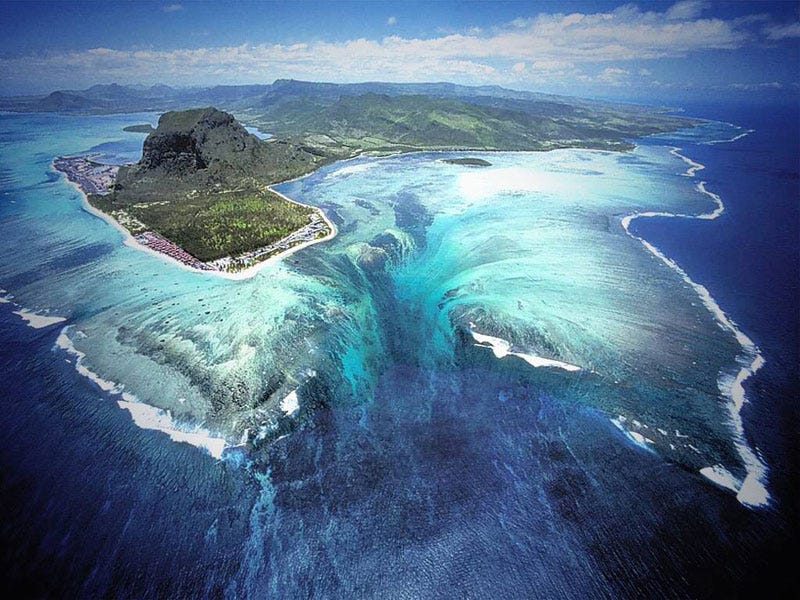
Even Google Maps gets in on the action!
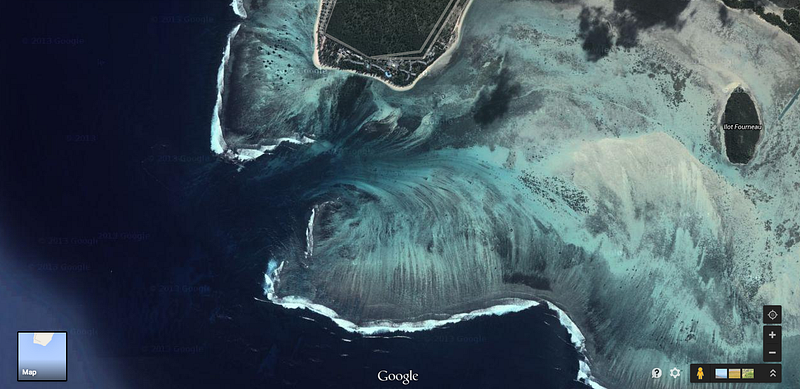
Okay, now that you’ve seen the illusion (brought to my attention courtesy of Twisted Sifter), what’s really going on here? Obviously, water is water, and even though we can do some very clever things by manipulating fluid flow, even very cold water wouldn’t sink in the way that this picture suggests. There is such a thing as an underwater waterfall (e.g., the Denmark Strait cataract, the world’s largest), but it’s a very different phenomenon.
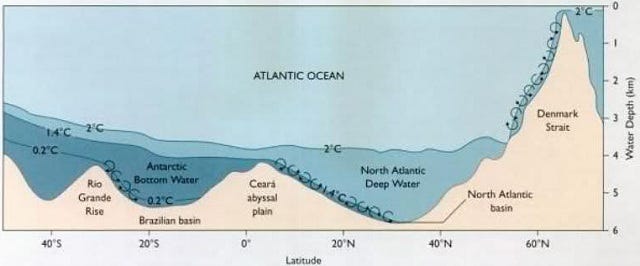
For starters, that’s not visible to the naked eye, in stark contrast to what you can clearly see off the coast of Mauritius. So while what we’re seeing — that appears to be a waterfall — is in reality something else, it isn’t apparent just what it is at first glance.
But there’s some really amazing and fun geology behind it; let’s dive in!
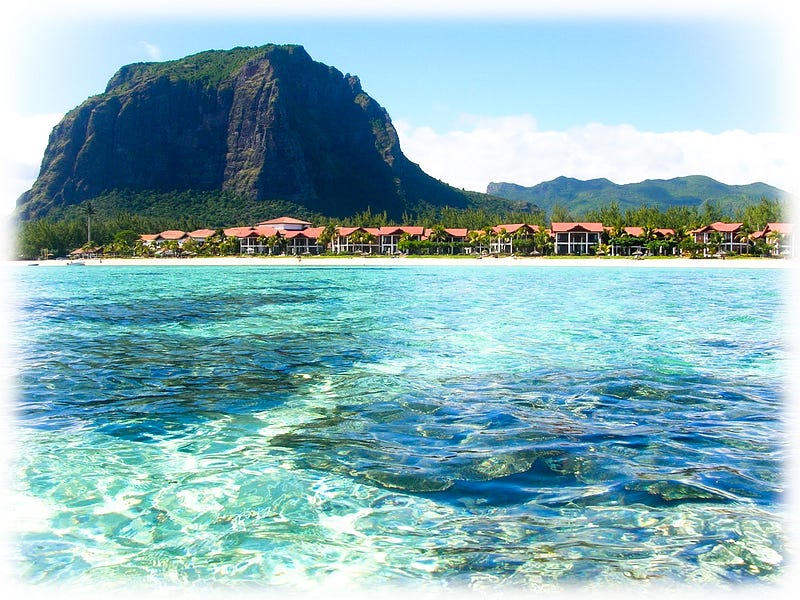
Like many ocean islands, there are fabulous reefs off the coast of Mauritius, living ecosystems that are fascinating in their own right. But unlike many of them, Mauritius, and indeed the entire land-and-seascape around it, is very, very new on geological timescales.
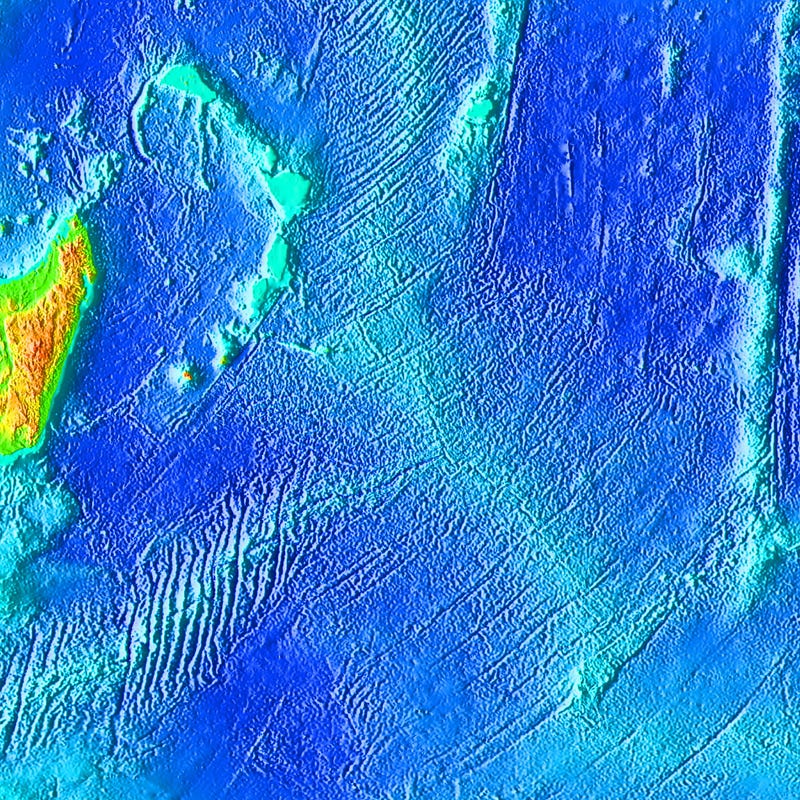
Mauritius is located at the southern edge of the Mascarene Plateau, the prominent (mostly underwater) shelf located at the 11 o’ clock position in the image above. (It looks visually similar to an underwater version of Japan.) There are a few islands there, including Mauritius, which is visible (along with Réunion Island) from the International Space Station in the image below!
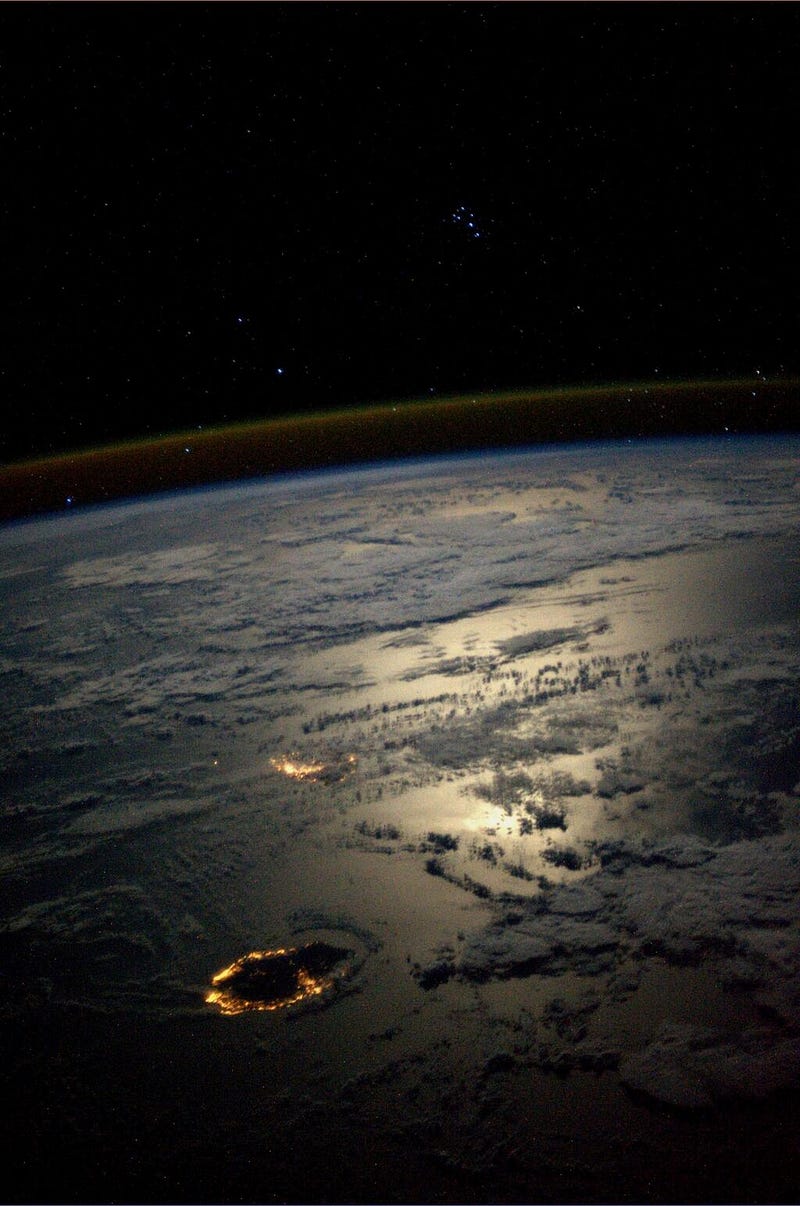
This oceanic shelf didn’t exist a few million years ago; sea-floor spreading created this plateau fairly recently. And there’s a huge drop-off when you leave the plateau!
While most of the ocean waters around these islands is at depths ranging from 8-to-150 meters, there’s a huge plunge off that shelf into the ocean, where the depth drops to many thousands of meters!
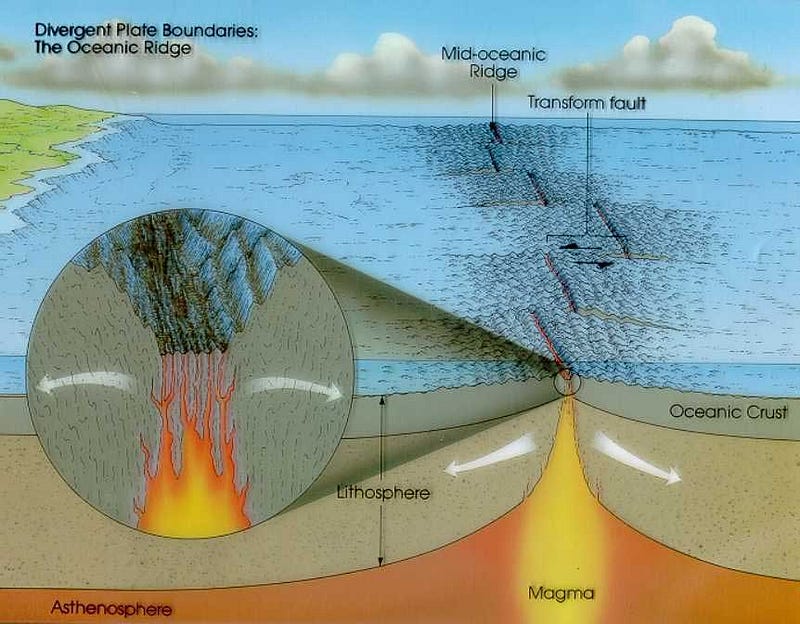
What you’re witnessing, that looks like an underwater waterfall, is actually sand from the shores of Mauritius being driven via ocean currents off of that high, coastal shelf, and down into the darker ocean depths off the southern tip of the island. There’s no significant temperature gradient, no continuous flow of water and nothing more complex than erosion going on here.
It’s just a very particularly directional erosion, along with sand falling into a crevasse that gives this phenomenon its one-of-a-kind appearance!
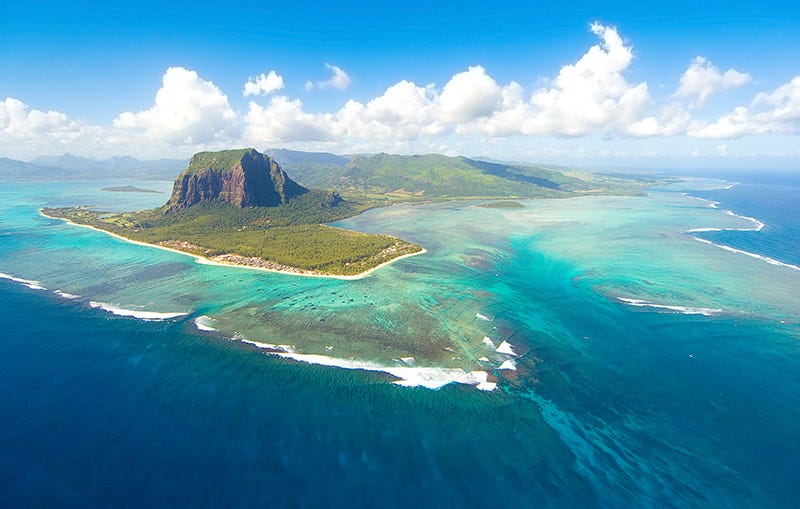
It’s a beautiful sight that I’d love to take in with my own eyes, someday, but what’s actually going on is in many ways far more beautiful than a (physically uninteresting) waterfall under the ocean.
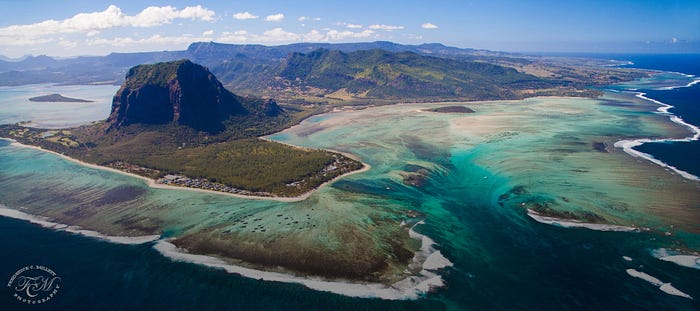
Image credit: Frederick C. Millett photography, via http://500px.com/photo/38442136.
It’s the natural world simply doing what it does, and we’re fortunate enough to get to not only enjoy it, but to understand it. And that’s your diversion for this weekend!
An earlier version of this post originally appeared on the old Starts With A Bang blog at Scienceblogs.
